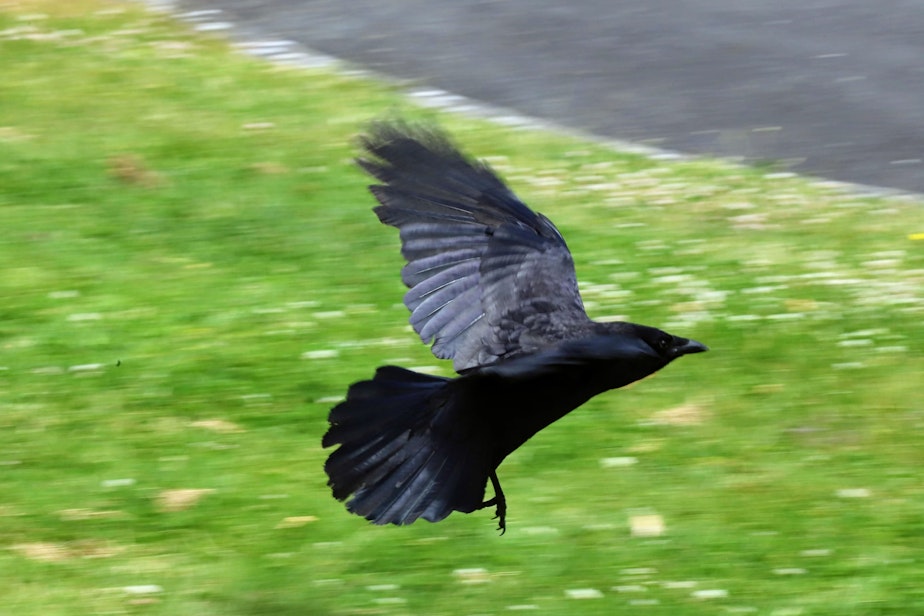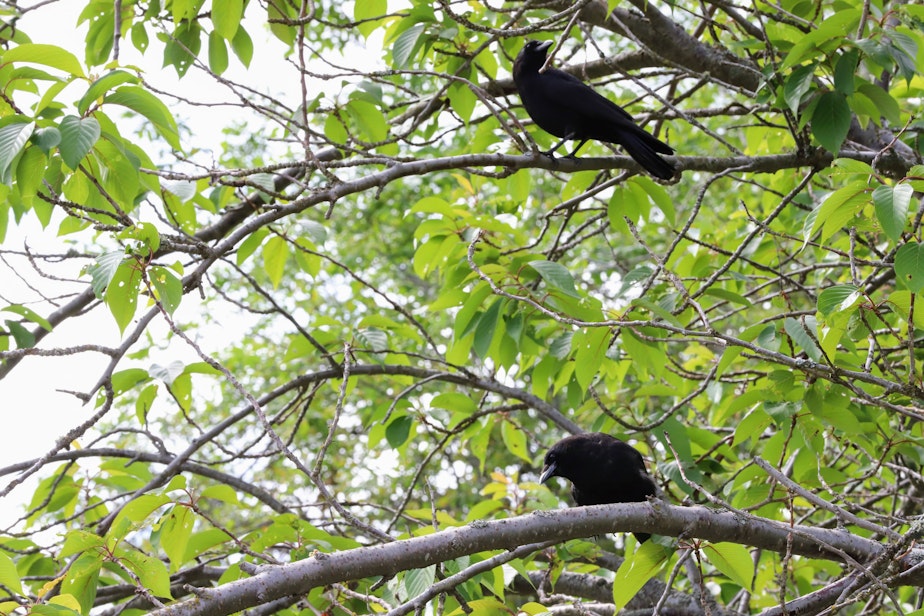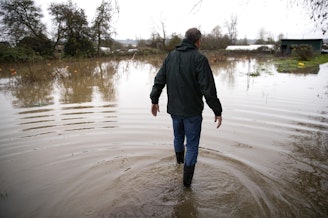Why crows are dive bombing unsuspecting Seattleites

Ever been walking down the street, enjoying the early summer weather, and suddenly get whacked on the head by a crow?
You’re not alone. Crow dive bombing is common around this time in early June.
“A crow followed me for about a block before swooping at my head,” said Clare in Greenwood, who didn’t give her last name. “I believe it was trying to scare me into dropping the bag of Dick’s hamburgers I was carrying home for my dinner.”
While the hamburgers probably didn’t help, crow dive bombings usually aren’t motivated by food.
They’re actually caused by a particular stage in a baby crow’s development, according to Dr. Kaeli Swift, an avian researcher at the University of Washington.
She told KUOW podcast Seattle Now that, like many birds, baby crows leave the nest before they can fly.

In the nest, “they're so exposed, they're very vulnerable to predation,” Swift said. “If something like a Bald Eagle, Red Tail Hawk, or Cooper's Hawk spies that nest full of these big, fat nestlings, they're in a very dangerous situation.”
The result is fledgling crows, which look surprisingly similar to their parents, running around on the ground for a few days before they learn how to use their wings.
“They have a better chance of survival on the ground where they can run around, hide under trees, hide under bushes,” but “they're still obviously very vulnerable,” Swift said.
The crow parents will watch over the fledglings and guard them against any dangers that come along — like us.

Nikki Baron learned about this connection when a fledgling fell out of its nest and into her back yard. She could tell it was a baby by the bird’s bright blue eyes.
“So we’ve got a new roommate for the next two weeks as this little bird learns to fly,” she said. “The mom and dad swarm overhead and dive bomb us any time we go in the backyard. It’s going to be a really long two weeks.”
The good news for people like Nikki is that crow dive bombings aren’t a danger to humans.
“Direct contact where they draw blood is really uncommon. We see that a lot more often in nesting barred owls and nesting great horned owls,” Swift said. “It's very unlikely you're actually going to get injured” from a dive bombing crow.
“If you have a pair that's nesting outside of your home or where you work... my best advice is to carry an umbrella when you go outside,” she said. “It's very simple, and it's really effective.”
Dive bombing is also relatively rare, given how many crows live in the Seattle area In fact, most people have positive relationships with the crows around them.
Many KUOW listeners said they have good relationships with their crow neighbors. Sometimes the birds even help them out.
Swift encourages people to get to know the crows around them, and even feed them. She says crows are unique because they live much longer than other birds in the city — up to 17 years — and return to the same territory again and again.
“When you go out to feed crows, you're feeding the same individual crows,” she said. “As that relationship forms over time, you inevitably get to know their personalities and their characteristics. And that is just an unbelievably fun experience to have with a wild animal.”
Check out Ferdinand, a rare caramel crow we ran into during the taping of Seattle Now's episode:





